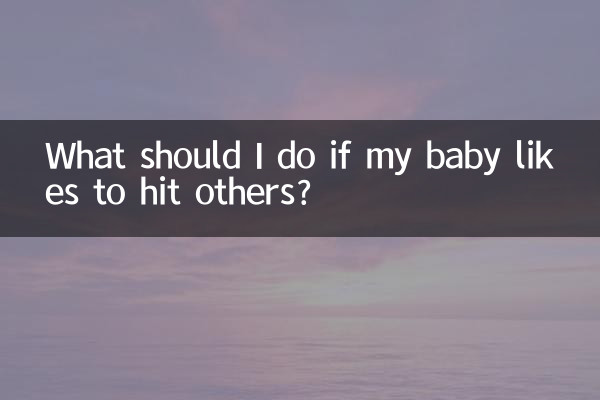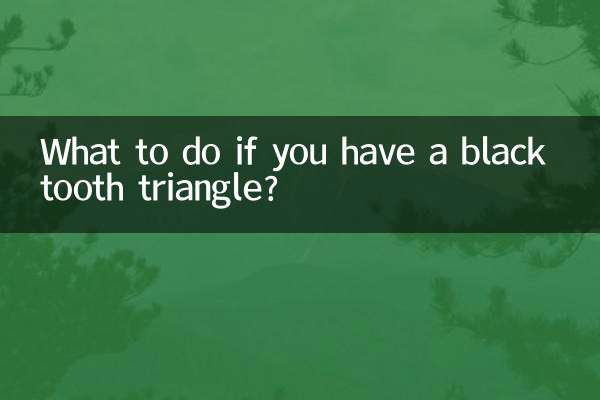What should I do if my baby likes to hit others?
In the past 10 days, the topic of "baby hitting" has triggered extensive discussions on parenting forums, social media and short video platforms. Many parents report that their 1-3 year old babies suddenly start hitting others, making them confused and anxious. This article combines hot discussions and expert advice across the Internet to provide you with structured solutions.
1. Data statistics on recent hot topics

| platform | Amount of related topics | Keywords TOP3 |
|---|---|---|
| Tik Tok | 128,000 items | Baby hitting, terrible two, aggressive behavior |
| little red book | 32,000 notes | Early childhood education, beating correction, emotional management |
| Zhihu | 476 questions | Psychological development, behavioral intervention, social disorders |
2. Analysis of common reasons why babies hit others
| Reason type | Proportion | Typical performance |
|---|---|---|
| Limited language expression | 42% | Slap parents/playmates when anxious |
| imitate behavior | 28% | imitate cartoon or adult actions |
| seek attention | 18% | Observe parents’ reactions after hitting someone |
| property rights awareness | 12% | Pushing when grabbing toys |
3. Phased response strategy
1. Respond immediately (when it happens)
• Stop immediately and squat down to look at the baby’s eye level
• Make the rules clear in simple words: "No hitting"
• Guide alternative behaviors: "Touch" or "Say it"
2. Daily education (prevention period)
• Build awareness through the picture book "Hands are not for hitting people"
• Play "gentle games" to practice gentle movements
• Praise friendly behavior in time to strengthen positive memory
3. Advanced training (consolidation period)
• Teach simple emotion words: angry/anxious/sad
• Set up a "cooling corner" to help calm down
• Practice conflict scenarios using role-playing
4. Comparison table of common misunderstandings among parents
| misunderstanding behavior | Correct approach | Principle description |
|---|---|---|
| Fight back with violence | Model nonviolent communication | Avoid reinforcing aggressive behavior |
| Overemphasis on "bad boys" | Distinguish between behavior and personality | Prevent inferiority complex |
| Immediately force an apology | Deal with emotions first and then guide them | Make sure you understand the consequences of your actions |
5. When do you need professional help?
It is recommended to consult a pediatrician or child psychologist in the following situations:
• Frequent aggressive behavior after age 4
• Accompanied by self-injury or destruction of objects
• Continuously harming other children in kindergarten
Parenting expert @王Fang mentioned in the latest live broadcast: "Hitting behavior is a common phenomenon in the growth of young children. It is more important for parents to maintain stable emotional guidance than to rush to correct it."Data shows that 82% of babies have significantly reduced aggressive behavior within 2-3 months after being guided correctly by their parents.
Remember, every baby is learning how to get along with the world. Your patience and wisdom are their best guides for growth.

check the details

check the details